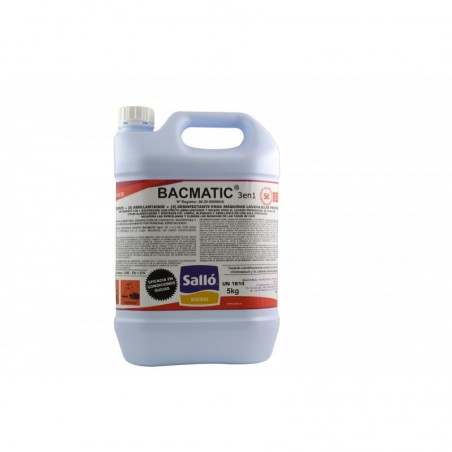We would like to begin this commentary by thanking our readers for their loyalty, constancy, and perseverance. Two of our articles are among the top 10 most read articles on the Pig333 website in 2021. Thank you very much for making this possible.
We have begun the year with two antagonistic news stories; on the one hand, France (the Macron administration) has managed to get the People's Republic of China to accept the principle of regionalization of production in the event ASF is detected in French territory (something that not even Angela Merkel herself managed to achieve for Germany) and, on the other hand, we have been astounded by the inopportune and extemporaneous declarations from Mr. Alberto Garzón, Spain's Minister of Consumer Affairs, stating that Spain exports poor quality meat. Two stances that are completely antipodal.

We recognize the good work done by the current French Administration (if ASF were to break there, pork from unaffected regions could continue to be exported to China) and our observation (tinged with reprimand) to the Spanish Minister: We do not believe it opportune to make statements to a foreign media without consulting the players involved (in any case, the debate should probably have been initiated in a domestic forum and should have contrasted the positions of other ministries and those involved).
A couple of weeks ago, news broke that ASF had emerged in Piedmont, northern Italy. One more factor to add to the battered European pork market. With ASF in Italy, its exports will be severely affected: most third countries (USA, Japan, Switzerland, Canada, Taiwan) will probably prohibit the entry of all forms of Italian pork: fresh pork, cured, and smoked products.
Moreover, Italy imports close to one million tons of pork per year; with fewer possibilities for re-exporting processed products, these flows will suffer and will add pressure to the already saturated European market. This is especially true for ham, the star product of intra-EU trade with Italy. In fact, this is already happening.
We would certainly have liked the Spanish Government to have shown alarm and consequent commitment to preventing the potential entry of ASF into Spain (a terrible threat) now that the disease has recently appeared in Italy. Here's a fact: It is less than 800 km from Piedmont, Italy to Catalonia, Spain as the crow flies.
Several negative factors are currently affecting the EU market:
- The persistence of COVID: the foodservice industry continues to stumble (its consumption is suffering) and confinement is affecting the production chain in slaughterhouses and processing plants.
- The persistence of ASF in Germany: the limitation on German exports due to ASF means that the pork that cannot be exported to third countries remains in the EU, adding more pressure to an already saturated market.
- Germany's 5D pork policy. The large retail chains have lined up behind this initiative: they demand pork from pigs born, weaned, finished, slaughtered, and butchered in Germany (the D is for Deutschland). Currently, there are serious problems in Belgium, the Netherlands, Poland, and Denmark because they are unable to ship pigs for slaughter to their usual customers, who are now unable to buy the animals whose pork nobody wants in Germany. How this story ends remains to be seen.
- The bewilderment of the German market: In effect, we have seen the "in-house" prices of each slaughterhouse be below the official quotations for a few weeks now. This happens from time to time, but it doesn't usually go on for this long.
- The absence of Chinese purchases; not a total absence, but purchases in much smaller quantities and, above all, at absurdly low prices. China is recovering its herd by leaps and bounds.
- The emergence of ASF in Italy is a new unfavorable factor, as mentioned above.
There was a fierce fight between the production side and the slaughterhouses during Spain's reference market session (Mercolleida) on Thursday, January 13. It closed with an unusual price increase - at the beginning of January - of 0.001 €/kg live. Quite a declaration of intentions.
In the January 20 session, the slaughterers and farmers took opposing stands. After an intense tug-of-war, there was another derisory rise of 0.001 €/kg live. For the time being, nothing else can be done. Anything could happen, especially with the 3 cents drop in the German carcass on Wednesday, the 19th.
The production side desperately needs the pig price to go up. Current losses are suffocating and unacceptable. Losing 30 cents per kilo live is not an option. The slaughterhouse isn't doing great either; its margin is far from comfortable, but at least it is positive for the moment.
It seems to us that there will be a ruthless fight; if things do not change, the fight will continue to be over breadcrumbs. Nobody can give anything away. The production side needs pigs to go up. The slaughterhouse needs to defend its margin and is facing a completely depressed pork market. We believe that any increases until March won't be significant.
Spain is a full member of the European Union, which is known as the Common Market due to common and equal rules for all. In order for the pig price to take off, it will be necessary to feel and see that the European herd has been reduced. We think that soon (in March perhaps?) the supply of animals for slaughter will be greatly reduced due to the massive slaughtering of piglets that there has been and to the many producers in Central Europe who are abandoning pig farming. Too many months with prices below costs (some countries have been here since October 2020!) have caused many desertions and cessations of activity.
When -and only when- the live supply becomes short and insufficient (at the entire EU level), will we see prices rise without complications. It is a matter of time, but this major supply contraction is underway and will come. We will be watching to comment on it.
We think it's possible for Spain to see the price of our pigs in May be at 1.30 €/kg live in Mercolleida and -with that said- we are very likely to see prices of 1.40 €/kg live in July. All in due time. We will get out of the tunnel; battered, but we will get out. Everything indicates that it will be a hard and difficult year for the slaughterhouses (It will take a lot to raise pork prices, and pigs will go up little by little in February, increasing with more force later on, although the opposite cannot be ruled out!)
To conclude, today we would like to broach -in these difficult times- a phrase from Seneca, a popular Stoic philosopher of ancient Rome: "There is no one less fortunate than the man whom adversity forgets, for he has no opportunity to prove himself."

Guillem Burset






